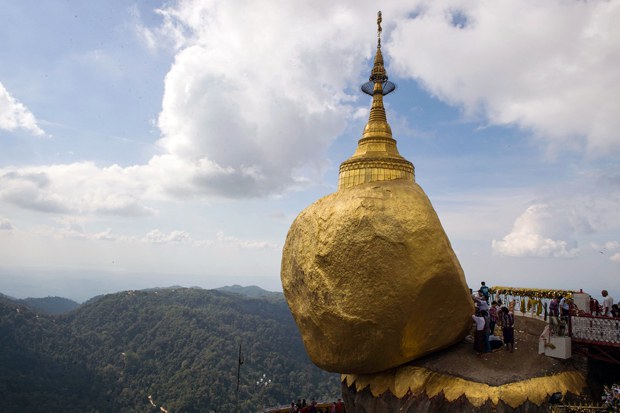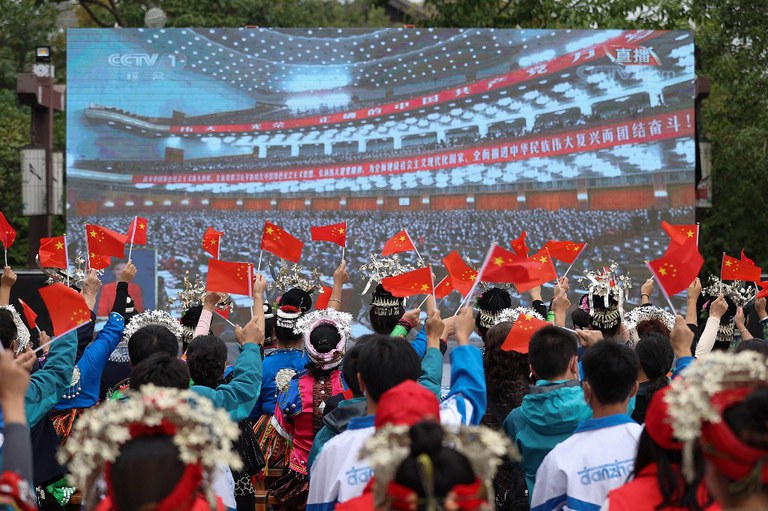Cambodia sentences Sam Rainsy to life in prison, concludes trial of Kem Sokha
UPDATED at 7:31 p.m. EDT on 10-19-2022 A court in Cambodia sentenced exiled opposition leader Sam Rainsy to life in prison on the same day that it concluded two years of proceedings in the trial of his apparently estranged former ally Kem Sokha. The two opposition politicians in 2012 co-founded the Cambodia National Rescue Party, or CNRP, which had been the country’s main opposition to Prime Minister Hun Sen’s ruling Cambodian People’s Party, or CPP, before it was legally dissolved in 2017. Sam Rainsy has lived in self-exile in France since 2015. Kem Sokha, who was arrested in 2017, has been on a trial that started in January 2020 in what critics say is the government’s attempt to keep him out of politics. Their time apart has apparently taken their toll on their relationship. Kem Sokha in June declared during a session of his trial that his alliance with Sam Rainsy was over, although Sam Rainsy was quick to dismiss the comments as the result of legal pressure. Wednesday’s life sentence against Sam Rainsy, handed down in absentia, was a result of his conviction in August, also in absentia, for trying to cede four Cambodian provinces to a foreign state. In addition to adding life to the 47 years he has already racked up in prior convictions, the court also removed all his political rights. Sam Rainsy’s defense lawyer, Yong Phanith, said the latest verdict was based on insufficient evidence. The conviction and sentence are in connection with Sam Rainsy’s meeting in the United States in 2013 with the Montagnard Foundation, an organization that works to protect the rights of indigineous minorities in Vietnam, the Bangkok Post reported. Sam Rainsy promised to defend the rights of Cambodian indiginous people during the meeting. Speaking from France on Wednesday, Sam Rainsy told RFA that the sentence is an example of Hun Sen’s regime attempting to exact revenge on him for his acquittal earlier this month from defamation trials that Hun Sen and another Cambodian official filed in France. Both sides claimed victory in the defamation trials, with Hun Sen saying that they absolved him of crimes that Sam Rainsy alleged he committed. Sam Rainsy dismissed the charges and sentence as bogus. “I have not ceded territory to any country. I only recognized the rights of the indigenous people we call Khmer Leu in the Northeast of Cambodia,” he said of his 2013 meeting. “I just took the 2007 U.N. statement on the rights of indigenous people, and I said that in the future, when the country is a true democracy, we will respect the rights of indigenous people,” Sam Rainsy said. RFA was unable to contact the presiding judge of the case, Sin Sovannaroth, for comment. The sentence is politically motivated, social development monitor Seng Sary told RFA. “Hun Sen has been doing all this because he wants to kick Sam Rainsy out of politics,” He said. “That court case in France was like pouring gasoline on a fire.” The conviction and sentence were to be expected from the Cambodian legal system, veteran political analyst Lao Mong Hay told RFA. Authorities use the courts as tools for their political purposes. End in sight Kem Sokha on Wednesday asked the court during the 63rd session of his treason trial to issue a verdict and put an end to his suffering. He was previously under house arrest, but was released from that prior to this trial starting. He was arrested in 2017 after the CNRP performed well in local commune elections, and charged with treason. Cambodia’s Supreme Court dissolved and outlawed the party, which paved the way for the CPP to snag every seat in the country’s National Assembly in the 2018 general election. The ban on the CNRP kicked off a five-year crackdown on political opposition, with many of those affiliated with the party arrested and detained on charges like conspiracy, incitement, and treason. While the court finally decided to end questioning, it asked that any final submissions be made by Dec. 21. Defense lawyer Chan Chen welcomed the end of the proceedings but expressed regret that the 2-year-long would drag on another two months – and five years since his client’s arrest. Now that the trial has a definite ending date, national reconciliation is necessary, Yi Soksan, a senior official of the local Cambodian Human Rights and Development Association (Adhoc) told RFA. “Both sides should find a common ground to negotiate an end to this political matter,” he said. Translated by Samean Yun. Written in English by Eugene Whong. CORRECTION: An earlier version of this report listed Sin Sovannaroth as the president of the Phnom Penh Municipal Court. He is is the presiding judge in the case.







